Caroline Leavitt's Blog, page 116
February 5, 2012
Val Frankel talks about Four of a Kind, Writing, Poker and more
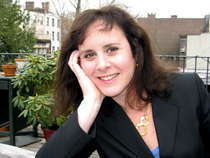
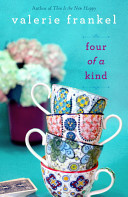
Valerie Frankel is quite frankly, a hoot. But not only is she smart and hilarious, she's brave and honest, and the kind of person you want to call at 4 in the morning if you're in trouble. (Don't worry, Val, I won't, I promise!) Her new novel, Four of a Kind, about modern women, mothering and New York friendships should be required reading. I'm thrilled she's here on my blog. Thanks, Val!
Lately, you've been writing some incredibly great memoirs (Thin is The New Happy, It's Hard Not to Hate You). Four of a Kind is a return to fiction for you. Which do you prefer doing, and was it hard going back to the novel form?
What I've discovered is that one inspires and informs the other. My non-fiction (magazine essays, articles and memoirs) get my brain going in a certain direction, which benefits my novels. Fiction lets me explore relationships that, for whatever reason, I hadn't let myself delve into too deeply in my personal life, which might trigger an essay idea or chapter in a memoir. It just goes round and round. So I need both. I guess I prefer fiction because writing a novel is like solving a puzzle without having all the pieces in front of you at the start. When it fits together at the end, it feels like a small miracle, as if my subconscious has been writing the story all along.
What I loved about Four of a Kind was the focus on how mothers become friends, even as they navigate the mine fields of New York private school, work while raising kids, and affairs of the heart. Do you think it's gotten easier for modern women?
Have things gotten easier for the modern woman? Definitely NOT! You have to be a genius parent, marathoner, top chef, fashionista, patient spouse, sexual dynamo, high earner, emotional savant, party thrower, AND the red hot center of a vibrant circle of friends. No man would be expected to be two or three of those things, and yet women feel like failures if we fall short in any category. But, God forbid all that pressure makes us unhappy, aka the greatest sin of the decade. Better add "Be happy!" to the list of demands we heap on ourselves. In Four of a Kind, I tried to dramatize the incredible pressure of being a modern woman, and to relieve it with humor and by giving my harried characters what none of them had time for previously or thought possible: unexpected true friendship.
I have to ask--when did you start playing poker yourself? How did the poker game come to be such an integral part of the novel?
I wanted to give the characters a reason to sit at a table together for hours besides eating, drinking and talking. I've found in my own life that when the hands are busy, the mind's guard comes down. So I put playing cards in their hands. Since they are frugal moms, I decided that they wouldn't bet with money. A woman's currency is her story, the details of her private life. So I had my characters play for each other's secrets. I sorted out the rules of Brooklyn Hold 'Em—when/how the players reveal their secrets—and the novel just wrote itself from there.
I had to learn poker along with my characters. We had a similar learning curve: steep. For research, I went to Hurrah's in Atlantic City and played Texas Hold 'Em against real players for real money. It was frankly terrifying. I lost all my money in just a few hands. Never again! I'd rather play for secrets anytime.
What's your writing process like?
My greatest gift as a writer is discipline. I sit down, and don't get up until I've hit my word count for the day. The pages might be crap, but they'll lead somewhere eventually. Twice, I had to write a hundred bad pages to get to what should have been page one. Ideally, I'd be able to figure things out in bed or on vacation. But my brain functions more efficiently when my fingers are on the keyboard. The result of habitual action. When I sit down to write, it's time to get serious and focus completely on what I'm doing.
What's obsessing you now?
My daughter is a junior in high school, and I've become obsessively going online to look up various colleges' accepted student SAT and GPA scores. This is NOT HEALTHY. My daughter is not a number. And yet, I can't stop myself. Culturally, I'm among the millions obsessed with Downtown Abbey. I love how the plot pushes to the point where the stakes might be too high. And then it pulls back to be a near miss. I want dramatic tension, but not tragedy. For my recent birthday, I bought my first iphone, and now I'm obsessed by Angry Birds, a time-wasting computer game. Professionally, I'm obsessed with my new novel. Since I write often about mothers and daughters as a subplot, I thought it'd be interesting to make that sacred relationship—several versions of it—the core of the story (with some romance and mystery throw in for good measure).
Published on February 05, 2012 14:16
February 3, 2012
Claire Bidwell Smith talks about the afterlife, loss and writing The Rules of Inheritance
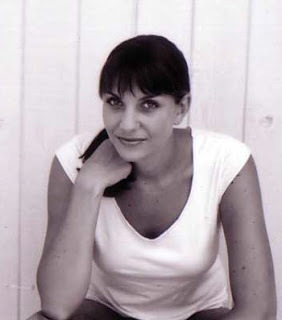

Loss. Love. Write about either one of those things and you have me. Claire Bidwell Smith's The Rules of Inheritance is so raw, so honest, and so gorgeously written that I began to reread parts of it the moment I had finished. I can't tell you how honored I am to have Claire here to talk about her book. Thank you, Claire!
What I loved about your book was how honest it really was. Many novels and memoirs about grief seem to be about "getting over it" quickly, yet your book moves back and forth through time to show how persistent grief is. Did this persistence surprise you?
Ah, the persistence still surprises me. I can't tell you how many times I've thought I was "over" the loss of my parents, and then something comes along in my life like marriage or illness or motherhood, and all the grief just rears up again. I think this is common for so many people who grieve though, and that's what I was trying to show with the book. Ultimately, I think that you never really get over the pain of losing someone you love. You just learn to live with it.
I'm glad you appreciated the honesty in the book. There were so many things I wrote about in these chapters that were hard to admit (i.e. writing about how my mother's body disgusted me when she was very ill), but I knew that to really write a book that would have an impact and be something that could be helpful to others in their process, I had to be as honest as possible. It took a long time for me to forgive myself enough for these thoughts and actions to be able to write about them, but once I did, I wanted to help other people be able to forgive themselves too.
I also loved the structure of the book, the way you moved back and forth through time to tell the story of losing both your parents at a young age. Did you know the structure when you began to write the book or did it take you by surprise?
Yes, I did know the structure. I had been working as a grief counselor in hospice for three years when I started writing this book and initially I intended to write a more educational book about grief -- one that kind of turned Elisabeth Kubler Ross's five stages on their head. As a grief counselor I can't tell you how many people come to me with confusion about the five stages. Regardless of whether the stages are the best grief tools, people really cling to them, yet also have a hard time understanding them. I wanted to show how malleable they really are. I decided that the best way to do that was to just use myself as an example.
You also deal with grief professionally. As someone who had a very bad grief counselor once, a woman who had never had any losses herself and who told me I was not "getting over it quickly enough", I personally feel that unless you've had to experience grief, you can't really understand the depths and power of it. Do you agree or am I deluded?
You're not deluded. I agree one hundred percent. I truly don't believe you can effectively counsel a grieving person unless you have lost someone very close to you as well. Loss is such a singular experience -- it's unlike anything else that will happen to you in your life. Therefore it's incredibly important to have someone who understands. I also think that grieving is really confusing and really lonely, and that one of the most useful tools for moving through the grieving process is to connect with others who are also grieving, or who have at least been where you are. I'm so sorry you had that experience! I wish I could have been your counselor -- I would have told you to take your time!
Part of the supreme pleasure of the book was seeing the transformation of your world view. You're now a wife and a mother who feels there is "something bigger" out there, a force. Can you talk about how your view of the world has changed a bit more?
My world view has indeed changed completely. I want to point out that it didn't necessarily take becoming a wife and mother to heal myself from the toughest part of grieving, or to adapt a new world view, even though that is where the book ends. Rather it took really sitting with the pain of grief, really letting myself go through the deepest parts of it, which is something I avoided for many years. I think for a long time after my parents died I was incredibly self-obsessed. I was in so much pain that I had a hard time seeing what was going on around me. When I began to emerge from that I was finally able to see how much beauty there was in the world.
Along my path of healing and transformation there were tiny cracks in the fabric of life that led me to finally begin to seek out a more meaningful belief system. I had to work really hard to adjust to this new way of thinking -- it was like looking at a negative image painting, except the opposite really, because what I was doing was learning to focus on the positive aspects of my life, instead of the terrible ones that I'd obsessed about for so long. Doing this was actually such a relief from the years of depression and pain that I'd experienced that I practically cried with gratitude for a few months. Now it's really easy for me to look around at my life and see what I have, as opposed to what I don't.
What's obsessing you now?
The afterlife! I'm working on a new book in which I go about trying to figure out what I believe happens next. From psychic mediums and Kabbalah to past-life therapists and Mormonism I've been delving into all kinds of interesting stuff!
What question didn't I ask that I should have?
I think you should have asked me how I'm going to convince people that this isn't a particularly sad book. My answer is that I don't know! But I do know that even if my book sounds sad on the surface -- girl loses parents to cancer by age 25 -- it's really not. It's also about love and sex and travel and coming-of-age and relationships and encounters with people you might never expect to meet. It's about taking chances and finding love and figuring out who you are over and over again. It's about life, just as much as it is about death.
Published on February 03, 2012 07:54
February 2, 2012
Robert Leleux talks about miracles, aging, Alzheimer's and The Living End
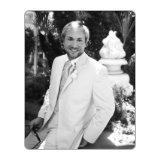
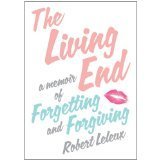
I recently met Robert Leleux at Kathy L. Patrick's phenomenal Pulpwood Queens Girlfriend Weekend book extravaganza. He pops with personality, he's warm, funny, and when he read from The Living End, I was struck by the infinite grace (and hilarious wit) of his writing. I couldn't wait to get him on here and I tracked him down through Kathy (thank you, Kathy), and thank you Robert. I'm truly honored.
You write: tiny, workaday actions can add up to miracles. Indeed, in this extraordinary book, they do. Can you please talk about that?
I can be as cynical as anybody; there's a part of me that goes through life believing that real change is impossible. But I can now say that my experience, and the experience of my family, directly contradicts such cynicism. My mother and my grandmother had always hated each other. I mean, from the womb. And then, during the final years of my grandmother's life, their relationship was entirely healed. And one of the critical ways that healing occurred was through these teeny, tiny little acts of intimacy that my mother was heroic enough to undertake while caring for my grandmother. Brushing her hair, polishing her nails, choosing the perfect brooch for her blazer. Whatever. And all those little, do-it-without-thinking things that we so often find ourselves doing for the people we love—changing a surgical dressing, changing a diaper, packing a lunch—they became these little stitches of affection that ultimately provided this spectacular healing. I'm sure all mothers already know this from experience; and I'm sure, on some level, I already knew this, too, from having been a much loved child. But it was nevertheless quite remarkable to witness the process by which someone comes to feel loved. The process by which a loving family is formed. And it was phenomenally un-operatic, you know? It was a great love story told one Depends diaper at a time. And it was, maybe, the most beautiful thing I've ever seen.
OK, I have to ask: Part of the unexpected delight of this book is the way you make Alzheimer's hilariously funny (without, of course, making fun of it.) The humor takes away a lot of the fear people have about this disease. What else do you hope to challenge about peoples' perceptions about aging and disease?
Well, first of all, my grandmother JoAnn was THE funniest person I've ever known. In the words of my godmother, she was "mascara-streaming-down-your-cheeks funny." So, it was extremely important to me that when I wrote about her life, it wasn't gloomy. You know, just because my grandmother had Alzheimer's doesn't mean that Alzheimer's was the story of her life. Wit, humor, and style, those were her defining characteristics. She used those qualities to get through all the lousy stuff life threw her way—depression, The Depression, World War II, male chauvinism. And to have told her story, even the saddest parts of it, without employing the same strategies would have felt, in some sense, like a violation. Just as it would have felt like a violation if I'd, in some manner, compromised her dignity by making light of her situation. But the insight writing this book gave me was that any person's story is much more than the sum of their experiences. That the lion's share of a person's humanity can't be conveyed in a biographical sketch. We're always so much more than what happens to us. And I think, in particular, when we're talking about people who are ill, it's very easy to forget that illness, any illness, is just this biological phenomenon, just the interaction of cells and germs, but that human beings are this spectacular, mystical, unquantifiable collision of dust and divinity. So, we can never, never be defined merely by what's occurring in our bodies.
What I so loved about your book was the way you looked at and interacted with your grandmother--the family bonds even in the face of Alzheimer's--a disease which transformed your grandmother JoAnn into a loving person who forgot past hurts. And even with Alzheimer's you were able to learn from her. Can you tell us what you learned and how it changed you?
The most devastating (and probably, the most selfish) thought I had after my grandmother's Alzheimer's diagnosis was, "I don't know what I'm supposed to do without you. This isn't fair. You haven't finished teaching me yet." Because, my grandmother was THE person I called when I needed advice, or had to talk through something. But what I very, very slowly realized—and we're talking, over the course of several years here—was that she never stopped educating me, even in the midst of a severe illness. So many of the BIG lessons—about being present, and not allowing yourself to be limited and hamstrung by the past, and about it never being too late to be surrounded by love—I learned from my grandmother in the final years of her life. I remember very clearly, there was this moment when I was worrying about some big, awful decision I had to make, and I looked over and saw my grandmother sitting there smiling, and I thought, "Oh, that's right. I forgot. My job, as a human, is to Be Here Now." Which is that great Zen lesson I forget about a million times a day. And then I thought, "She's entirely present, and quite happy. Between the two of us, which one of us could be said to be suffering an impairment?" So, you seen, JoAnn never stopped setting an example for me.
Being a caregiver, the way your mother was to your grandmother JoAnn can be exhausting. What did you learn from watching your mother and how did it impact your life?
There is no more challenging work in the world than that kind of caretaking. The difficulty of that experience is so all encompassing. It's emotional, it's spiritual, physical. You just have to experience it to have any kind of understanding of the kind of exhaustion it creates. It made me realize that not only do people experiencing illness need caretakers, but caretakers need caretakers, too. You have to check in with these people, and really insist that they care for themselves. Take them to the movies; insist they take a nap; treat them to a mani-pedi, whatever. AND it also taught me that there's no holier work than caring for a loved one. That the horror and difficulty of it is in direct proportion to the holiness and worthiness of it. ALSO, I just want to point out that this kind of work is largely unpaid, or at least extremely underpaid, and it's also almost entirely done by women. And that's not a coincidence. We have, yet again, another scenario where women are expected to do something incredibly difficult for no pay, and really, not much acknowledgement. I think that, in addition to giving out Purple Hearts and Medals of Freedom to people who've been in combat, we need to give them to people who're undertaking the work of caretaking and healing. Because what these women are doing is a contribution to the nation as profound and scary and challenging and heroic as any human endeavor.
I love that you wrote, "we are largely whom we pretend to be," which sounds like wonderful advice on how to live your life when you don't feel worthy or loved or any number of things. Care to comment?
Oh, well, my grandmother was this fabulous, over the top Southern lady who lived her life at a sort of non-stop Tennessee Williams pitch. Reality was never entirely sufficient for her. So, she always existed on two distinct planes—what was actually happening, and the way she interpreted what was happening. And that was such a powerful lesson to me—as a person, and as an artist. That we really do have the power to make chicken shit into chicken salad. She taught me that you can kind of stake a claim for yourself in faith and belief, and that reality, very often, will reconcile itself to your point of view. So, for instance, if you have crazy self-confidence, very often the world will begin to treat you with the respect you've always demanded. Or, if you believe yourself to be worthy of love, love will quite often come your way. So, I guess it's a very powerful argument in favor of being completely delusional.
What's obsessing you now?
Over the past generation, our culture has undergone this compassionate revolution in relating to children with developmental issues. I remember so clearly how terribly children with autism, for instance, used to be treated. They were a segregated population, treated as though they were malformed, or mistaken. And now, thank God, we know that there's nothing "wrong" with those beautiful kids. They're exactly who they are, and where they're supposed to be, and they have so much to contribute. And I think we so desperately need to have a similar revolution in our thinking about people going through Alzheimer's and old-age dementia. What they're experiencing is completely natural, and we really need to flex our compassion in relating to them. I mean, their lives aren't over. They're still present and aware and alive. And we need to work to make their lives as stimulating and affirming, as filled with humanity as possible. One of the huge light-bulb moments of my life was when I realized that there's a fundamental difference between "gone" and "missing." My grandmother's Alzheimer's broke my heart. I desperately missed the woman she'd been. But though many parts of her seemed to have disappeared, they weren't missing. She was whole and complete, just as she was. She was fully experiencing a natural passage of life. And the more fully I absorbed that lesson, the more fully I was able to savor her company, and enjoy the time I had left with her.
Published on February 02, 2012 07:00
February 1, 2012
Meredith Maran talks about activism, self-doubt, the little engine that could and her extraordinary new novel, A Theory of Small Earthquakes.
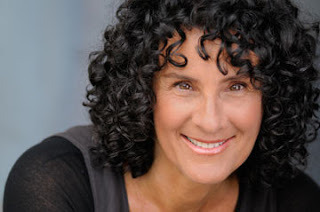
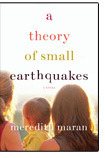
Meredith Maran published her first poem at the age of six in Highlights for Kids. How cool is that? She's gone on from that illustrious start to become a journalist, book critic, and absolute knockout writer. (Go read My Lie, her memoir about false memory, immediately if you haven't already.) Her novel, A Theory of Small Earthquakes, is a breathtakingly smart, funny and heart-wrenching novel about sexuality, family and what we do--or don't do--for love.
I'm honored to have Meredith here. Meredith, I can't thank you enough!
What sparked the idea for this novel?
A decade ago, a friend who shall remain nameless told me a true story about such an alternative family, whose existence required so much forgiveness on the part of all involved, I thought, "If only I were a novelist, that would make a great plot." As I watched the story unfold in real time in my friend's real life, the itch to write it finally overcame my fear of attempting a novel. After a lifetime of writing only nonfiction, that fear was epic—and, as it turned out, well-founded. The novel took two years to write, five years to rewrite, and many gnawed fingernails to sell. And it's been the most thrilling writing experience of my life. Je ne regrette rien.
Your novel is a brilliant exploration of what makes a happy family, what's "normal" and how do we navigate this new terrain. Do you think, given what's going on politically, that we can ever, as a people, simply let people be whomever they want to be and love whomever they love?
Sometimes I feel that that unwillingness to be accepting is changing, but often, I feel despair.Abandon your despair, ye who seek equality! There are discouraging moments, for sure--the current Republican Presidential campaign being a very long, drawn-out, excruciating series of them--but oh, so much progress as well. Let's start here: I'm legally married to a woman. In the State of California, at least. Don't get me started about the thousands of dollars my wife and I spend each year to deal with our lack of federal marriage rights, but hey. We're married!
Having been an activist since the sixties (long before I was IN my sixties!), I've seen the civil rights movements of other groups--women and people of color, to name two--making such creaking, creeping gains. Biracial President notwithstanding, you could argue that things are worse, now, for some folks who have been fighting for their rights since they arrived here on slave ships.
Anyone who knows me will attest to my impatience. But where gay rights are concerned, I'm thrilled with the gains we're making.
I loved the title. Can you talk about it?
Oy, the title.
Over the eons it took to bring this book from concept to publication (see "impatience," above), the novel had at least five working titles, ranging from the original "The Surrogate" to "Boy Girl Boy Girl," which came in a close second to the final. The phrase "A Theory of Small Earthquakes" came to me in a flash, and I loved it, but there were so many factors to consider, and such a big job the title had to do. My dad was a true MadMan, and I grew up naming products at the dinner table, so the marketing concerns were paramount.
I'm a great believer in the meme of "The Little Engine That Could." I'm also more of a realist than an optimist. So I knew my novel faced the danger of, shall we say, marketplace resistance (i.e., poor sales). Hey, it's a first novel, set in Berkeley, about a child being raised by two women who used to be lovers—and are still, in many ways, lovers—and a man, whom one of the women is married to, who might or might not be the child's biological father. (See "acceptance of gay people," above.) Not as easy a sell as, say, a novel about one of Hemingway's wives, or a novel by Jodi Picoult.
Also, the title had to position the book somewhere along the dread spectrum of "literary" versus "commercial" fiction. I'm doing my next nonfiction book ("Why We Write," out from Penguin in 2013) specifically to demonstrate what harmful bullshit that dichotomy is. I hate it, and the way it limits readers and writers. But it exists. And I knew that My Little Novel That Could needed all the help it could get to make it up the mountain of commercial viability. So the title had to help sell the book to those who enjoy good writing as well as those who enjoy a twisty, turny, plot-driven story.
I worried that "A Theory of Small Earthquakes" was too "arty," too "literary." I worried that people would think it was another nonfiction book by Meredith Maran, who had decided to give Mary Roach a run for her money by becoming a science writer. I worried (did I mention that I'm extremely superstitious?) that giving my novel that title would cause actual earthquakes (which it seems to have done, but at least they were small earthquakes). On the upside, as I said, I loved the phrase. And the earthquake metaphor was so fitting for a book set in the Bay Area, about a woman who hopes that if she discloses enough "small lies," the big lie upon which she's built a family won't blow up in her face.
Here's a little insider info. After we agreed to give the book that title, my brilliant, adored and adoring editor had me put more earthquake content into the book. Craft-wise, the most challenging writing I've ever done was to describe an earthquake on the page in such a way that a reader who's never lived through one would actually know what it feels like.
You're also a book critic as well as an author--does being a critic change the way you look at your own work? Are you ever aware of how a critic might look at your work or do you shut that out as you are writing?
Long before I was a book critic, I was the New York Jewish child of New York Jews. 'Nuff said? Who needs outside critics with that DNA? Hearing all the terrible things people might say about my shitty first novel wasn't a job I had to contract out.
As we speak, I've just received my first copy of the actual book. I'm scared to look. (See "New York Jewish Self-Loathing," above.)
On a less serious note (!), being a critic has confirmed my suspicion that the book review is a rigged game. Many reviews I read are about the reviewer, not the book. Reviews of my previous books have proved how rare it is for a reviewer to read, let alone contemplate, the book under review. Even though reviewers are paid abysmally ($200 or less is common), I believe a book review is a service provided to the reader, not a showplace for my own brilliance or maliciousness or brilliant maliciousness; not a way to extract my revenge for being underpaid by a factor of at least ten.
So if I'm asked to review a book I hate, I send it back. I've written one really negative review in my life, and that was of a book whose author was (and still is) dead. Writers have enough mishegass to deal with. I might not get to heaven, but it won't be because I disrespected the effort and integrity of a fellow/sister writer in order to boost my own ego.
Tell us about your writing life. Do you outline or is it more intuitive? Do you keep a schedule?Very simple schedule. Wake up before the sun. Work happily like a motherfucker till bedtime or "Homeland," whichever comes first. Eat something soupy at desk around 8AM and again around 2PM. Break for two hours for perspective-restoring hike with a writer friend. Go to sleep worrying book won't sell . Wake up worrying book won't sell and I'll never have the chance to do this again. Repeat.
PS I wouldn't trade this life for anything, and I've proved that by refusing to trade this life for anything. Even an actual living wage.
What's obsessing you now?
See "book won't sell," above. Also see "I'll never have the chance to publish another one," above.
What question didn't I ask that I should have?
The question no writer with a fresh book launch wants to be asked, except that I do want to be asked, because it's my current obsession. "What's next?" Another novel!
I'm a total convert. I'm knee-deep into the next novel, about which I'm absolutely thrilled, as is my agent, which is very encouraging. Now I just need to find a space between pimping "Earthquakes" and writing book reviews, so I can finish it. Hint: it's about WEALTHY HETEROSEXUALS. But they have this renegade teenage daughter who holds her parents' hypocrisies up to their faces like a mirror, which helps me not to hold their heterosexuality or their financial success against them. In fact, I'm madly in love with the characters, which I take as the best portent of all.
Published on February 01, 2012 07:53
January 30, 2012
Sarah McCoy talks about the color red, research, motherhood and The Baker's Daughter
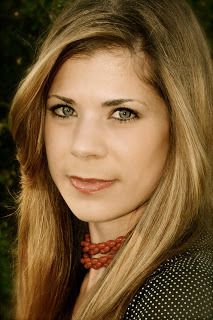
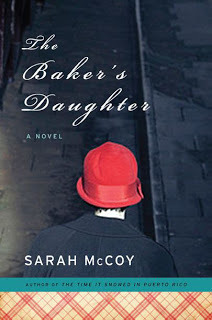
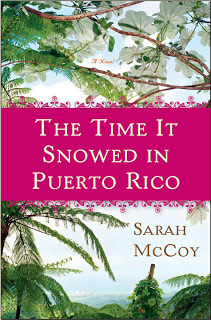
I love Sarah McCoy. Her novels and the person. We met on twitter and discovered that we share so many things--packing phobias, curly hair products, and a love and obsession with our writing. I loved The Time it Snowed in Puerto Rico, and I love The Baker's Daughter even more. I'm not just honored to have Sarah here on the blog--I'm deliriously happy because she's also my friend. Thanks for everything, Sarah!
Where did the idea for this novel spark?On my first visit to El Paso to look for a place to live, my husband and I were on the plane with a group of Germans. I didn't think it too out of the ordinary at the time. I figured it was a tour group – vacationing Europeans off to see the American Wild West. My dad was an Army officer, and we were stationed in Germany during my childhood. My husband also grew up in Germany, speaks fluent German, and worked at a German resort during college. So we were familiar with the German fascination with America's cowboys and Indians as much as our own with their lederhosen and beer steins.
Months later, when we officially moved to El Paso, the city magazine asked me to write a feature article on the German community. I had no idea there was an established community. I learned: the Luftwaffe has trained fliers in the United States since 1958. In 1992, they consolidated their troops at Holloman Air Force Base, New Mexico, just up the road from El Paso. Yes, there is a sizeable German air force base on the Tex-Mex border. Bet you didn't know that! I sure didn't but was instantly riveted.
My research for the magazine led me to a bakery in town called Marina's German Bakery. The staff graciously allowed me to poke around their kitchen and ask a bazillion questions, which ultimately led to the creation of Reba and the present-day storyline of The Baker's Daughter.
Then one day, my husband and I went to a farmer's market and met an octogenarian German woman selling bread. I was completely enamored of her, and all that I imagined her life might've contained. While picking out my brötchen rolls, I asked how she came to be in El Paso. "I married an American solider after the war," she said, and I had a vision of a young woman named Elsie in 1945 Germany. My childhood in Germany, and my many visits back as an adult, stoked my imagination as I dug into the history books and firsthand accounts of that horrifying final year of World War II.
What about your present-day research for Reba's story?For that, all I needed to do was open my eyes and look around; unplug my ears and listen to my neighbors; allow myself to challenge the prevalent immigration opinions and imagine it from a Mexican national's perspective or from an American who loved and cared about that person. I read Border Protection and police raid transcripts, cut out articles from the newspaper, listened to radio and TV reports, and read the essays my students wrote. I was teaching writing courses at the University of Texas at El Paso. Then I went out to where El Paso's Interstate-10 curves around the heart of Ciudad Juarez. On one side of the highway, a giant Mexican flag flies over desert shacks burning tires for warmth. On the other side, UTEP's giant Sun Bowl with digital screens and football fans eating heaps of nachos each weekend. It's a stark contrast. All-American versus… not.
Your second novel is vastly different from your first— a coming-of-age story. Is that something you consciously aimed for or does your imagination take the helm?In my writing and reading, I love stories in which I learn something new—be it historical, emotional, philosophical, scientific, artistic, etc. I like to close a book and know that I've acquired some body of knowledge that I didn't have prior to opening the cover. I can't write the same thing twice just as I couldn't learn to ride a bike twice. Once you learn, it sticks. So you move on to how to waterski or do the Cha Cha, paint a landscape or make a lemon battery—something new.
The Time It Snowed In Puerto Rico is about an 11-year-old Puerto Rican girl coming of age in the 1960s. The Baker's Daughter is about war and exclusion, love and forgiveness. The appeal for me, as the author, is in the discovery of unexplored themes and learning from the characters as they share their stories.
The hat on your book cover is red and you use the color throughout the story. Was that intentional?(I'm in good red-loving company, Caroline. I blatantly covet your red boots and am on a quest to find a pair by the time we meet in person.)
The use of the color red was not intentional. It simply started appearing in the story: a poppy, a sunset, a dress, a ribbon, geraniums, a hat. It organically bloomed from the characters. About three quarters of the way into writing, I stopped and took notice.
In regards to the cover, I had no clue what the designer would come up with, but when I saw the woman's back and the red hat, it all seemed to fit. There's something about red. It grabs your attention and holds it. It's beautiful, vibrant, and slightly alarming. In a color, it captures how I felt while writing this novel—how the characters felt in each of their settings.
What's obsessing you now?Motherhood. I'm at that age when every friend I know seems to be nursing a newborn or pregnant. I've sat besides friends waiting for stripes on the pregnancy wand and friends undergoing months of fertility treatment to both joyful and disappointing outcomes. The concept of nurturing—the definition of being a nurturer– keeps me up at night. What lengths will we go through to fulfill our desire to parent? And what happens when the traditional path fails or is not chosen? Can you still be one? Of course, all of this has funneled into my current work-in-progress, novel #3.
What question didn't I ask that I should have?I guess you could've asked me who is the baker's daughter? But I'm glad you didn't because I can't say for absolute certain. There are so many layers of daughters in this book. What I can say is that I am not the baker's daughter! My mom can fry a fierce egg and steam up seafood like you've died and gone to Old Bay heaven, but growing up, she wasn't much of a flour-&-yeast devotee. For a few years, she tried her hand at homemade sourdough in a bread machine. My brothers and I thought the vertical loaves extremely odd and the frothy "culture" worthy of a horror movie. We went to the supermarket bakery for baguettes instead. She gave up and stuck to baking peanut butter cookies after that.
Published on January 30, 2012 04:58
January 29, 2012
I talk about bullies, reviews, second chances, dogs and more on Brad Listi's wonderful Other People
Brad Listi is one of the funniest, kindest smartest people on the planet. Besides The Nervous Breakdown, he runs this incredible podcast called Other People, where he conducts hilariously funny, inappropriate interviews with writers. I'm thrilled and honored that he interviewed me! Please take a listen, and leave an inappropriate comment or six.
Published on January 29, 2012 07:04
January 25, 2012
Sheri Holman talks about fear, writing, motherhood and illness
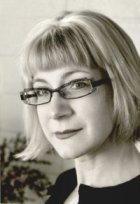
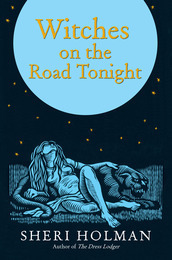
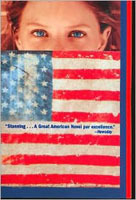
Sheri Holman's one of the coolest people on the planet. A brilliant writer, her first novel, A Stolen Tongue was translated into 13 languages and The Dress Lodger was both a national bestseller and a New York Times Notable Book of the Year. The Mammoth Cheese was short-listed for the UK's Orange Prize, and she's also written for children. A founding member of The Moth storytelling venue, she lives in Brooklyn with her family. I'm honored to have Sheri here, and her essay, about the ways we cope with fear is a stunner. Thank you, Sheri. For everything.
We noticed something was wrong while I was on tour for my last novel. My beloved publisher Grove/Atlantic had managed it so that my mother and aunt could travel along, helping to care for my six-week old twin boys. It was an exhausting, exciting time and trouble was far from my mind. But while Felix was nursing and gazing at me as babies do, his twin brother, Linus, was looking down and away, not making eye contact. My mother worried he was blind, and while I didn't think it was that extreme, I did have a irrational gut feeling something was terribly wrong. Home from tour, I took him to the doctor, but the pediatrician told me twins sometimes lagged behind developmentally. Unable to shake the feeling, I took Linus to an ophthalmologist to have his eyes checked. Looking into my three month old son's dilated pupils, the doctor grew quiet and left the room. When he returned, he had the number for an oncologist. He had found a massive tumor on Linus's retina, pressed against the optic nerve.
I had thought I knew what it was to be afraid, but I had no idea the depths of terror and helplessness into which a parent could be plunged with the serious illness of a child. During the next few years of Linus's intensive treatment – chemo, radiation, laser, and cryotherapy (not to mention the normal sleep deprivation of raising twins and their barely older sister) – our family struggled to stay positive and strong. But fear ate away at everything, and as much as I fought it, superstition and magical thinking crept in. I had failed at a mother's first job – I could not protect my child. I lost confidence, saw danger everywhere. I popped into random churches to light candles, I made bargains. I tried to write – the medical bills were piling up – but I had nothing to say. One especially frigid winter morning, waiting for the car to warm up so that I might drive Linus in for his predawn appointment, I sat reading Lorrie Moore's brilliant "People Like That Are the Only People Here." It was the first time I cried, and I sobbed until snot ran down my chin. It was too good and too true. Even as I wiped my face, I wondered if I would ever again have room in my life for fictional characters. I wondered if I even cared.
Up in the middle of the night, nursing fretful babies, I would watch the news. The casual fear- mongering, which before had caused me to roll my eyes, now felt cynically manipulative. For us, the world did seem to be coming to an end, we felt perpetually under attack by unseen forces. And the news was mirroring and heightening my own fears. I watched as supposedly respectable journalists like The New York Times's Judith Miller conjured horror stories about weapons of mass destruction. I watched America plunge itself into a blind war and destroy the lives of millions, leaving families here at home and in the Middle East gutted, children orphaned. I thought about how easy it was to mobilize an already weakened society, how terror becomes its own weapon of mass destruction, effecting not one generation, but the descendants of all it touches. I began to ask myself what sort of societal suicidal impulse spawned a news media invested in keeping us paranoid and afraid? Who profited by this?
Under the care of a dedicated, gifted group of doctors, my son got better, and is now a happy, healthy, wickedly funny eight year old. Ultimately, I took those years of anxiety and anger and poured them into the book that would become Witches on the Road Tonight, a novel that explores America's fascination with fear through three generations of the Alley family – Cora, a mountain witch who rides men at night; her son Eddie, a campy TV horror host, and granddaughter, Wallis, an anchorwoman for CNN.
I've been away from publishing long enough that I've lost my illusions a trajectory exists for any writer's career. It's a scary thought and sometimes gives me the 5 am panic attack. Sometimes, I still wonder how much I have to give fictional characters; and, yes, sometimes, even if I care. But writing about my own primal terrors has taught me that fear is ours to control. And having my son tickle me awake every morning, demanding his breakfast, gives me the courage I need to keep finding out.
Published on January 25, 2012 07:34
Sam Winston talks about his extraordinary debut What Came After, crossover writing, bad advances and the future of us and of publishing
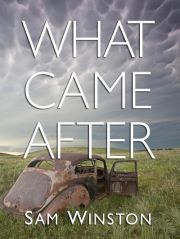
I hear about books in all sorts of ways. Sometimes publicists and editors contact me. Sometimes authors do. And sometimes I just keep hearing about a book on social media and I get so curious, I seek out the book myself. Case in point: Sam Winston's extraordinary What Came After, an e-book about the end of the world. I started reading after dinner and didn't stop until I finished. This is no ordinary book. Character-driven, haunting, and gorgeously written, I think it's a classic. So, of course, I tracked Sam down and talked him into coming on my blog. Thanks, Sam! Now hurry up and write something else! And visit Sam at his website http://www.whatcameafter.com.
So what's it like to be a celebrated new novelist? Can you tell us about your road to publication? And what's next on your agenda?
There's celebrated, and then there's celebrated. But people are finding the book and responding enthusiastically to it—that's the main thing. And apparently they're telling their friends, too, which makes all the difference. It's gratifying.
My path was and remains like that of so many other writers. I'd written a number of novels, and I'd had some first-rate literary representation over the years, but for whatever reason that magical sale to a big New York house never quite materialized. And when I finally began working on What Came After, there was an urgency about the whole project that made me decide to forego the usual commercial process—which, as you well know, has a built-in delay of at least a year between sale and publication even if things go perfectly—and publish it myself. My agency never even saw it, although they've definitely seen it now…
As for what's next: I'm working like mad on a couple of related projects. One is a full-length sequel, and the other is a group of short stories set in the days just prior to What Came After. Little bits of backstory, having to do with the collapse that set everything in motion. I'll be releasing them one by one, with the aim of keeping readers happy until the sequel's ready.
I always ask--what sparked this novel? It certainly seems really timely.
You've put your finger on it. The classics of science fiction have always been imaginative responses to the culture around them, and in that sense What Came After is a real-live hunk of old-fashioned sci-fi. The world that it describes comes straight from the list of things I worry about every single day: the cruel imbalance of rich and poor, the perilous state of our health care system, the outsourcing of government (especially the military), the genetic modification of foods, and so on.
Just as filmmakers in the fifties and sixties conjured up alien robots and little green men to substitute for the Russians, today we substitute hordes of vampires and zombies for the things we're really afraid of. I thought it would be good to write a post-apocalyptic adventure that didn't rely on that kind of transference, but faced up directly to the mess we're making of things.
I really loved that the Apocalypse was caused by our need for greed. Do you think that our future is ever going to change or are we doomed?
We need to start working together if anything is going to change.
Funny thing is, you see very similar sentiments on both sides of the political spectrum. The Tea Party hates big government and the Occupiers hate big business, but in the end it's the collusion of government and business that's gotten us into this fix. In What Came After that collusion is best represented by Black Rose, a private army that the federal government spun off in the years before the novel begins. They're brutal mercenaries through and through, selling their services to the highest bidder. Poor Henry Weller, one man just trying to get some health care for his daughter, has his hands pretty full.
At the heart of the novel is Henry's love for his daughter, which was so moving and which, for me, grounded the novel, and put it squarely in the literary arena. Do you think that love can save us?
I sure hope so. I'm a dad, you know, so that's the kind of thinking that drives both me and my work. As a parent you can't help but look into the future and try to imagine how things will work out for your children—and right now, we're in a state that Americans haven't been in for a long time: life threatens to be worse for our children than it has been for us. Henry Weller saves Penny. With any luck, by giving readers a lens through which they can look at these things, I can help save my own kids.
I'm glad you mentioned the word "literary," because everything else I've written would fall squarely into that camp. What Came After uses very compressed and telegraphic language that's not quite conventional for sci-fi, and it's built around a steamroller of a plot that's not quite conventional for literary fiction, and so in those ways it's a bit of a crossover. So far, though, folks on both sides of the aisle seem to dig it pretty well. The main thing is that it's about credible people in a credible—and extremely perilous—situation.
What's your writing life like? (I love to hear about structure, rituals, outlines, the works.)
I'm very methodical. Most people don't realize that if you write for an hour a day, and get 250 words down, inside of a year you'll have a whole novel on our hands. That's a very powerful routine. And the duration of it gives you the time you need to get the thinking right.
I usually start out working by the seat of my pants and end up shifting into a kind of desperation outline by the halfway point just to keep things straight. This novel was different, though. Instead of jumping right in, I sat down and wrote out the whole narrative just the way I'd tell it to you over the supper table. Maybe four or five pages' worth. So I knew exactly what was going to happen when, and how it all tied together.
I've never heard of anyone using that system before, but then again I don't get out much. It worked really well, though.
What's obsessing you now?
The whole crossover phenomenon in publishing. I came to this book organically, as a more or less literary writer who'd grown up reading the masters of elegantly-written science fiction: Ray Bradbury and Kurt Vonnegut. So it was only natural that What Came After worked out the way it did. (My brother sent me a note while he was halfway through, saying that as he read it he could see me propped up in my bunk bed, reading The Martian Chronicles.)
Today, though, we have this phenomenon of literary writers jumping into the more speculative and sensational genres—Colson Whitehead writing about zombies, Justin Cronin writing about vampires, Glen Duncan writing about werewolves—but the criticisms in the air suggest that there's nothing deeply integrated about some of these projects. They don't seem to appeal all that strongly to either side of the literary/genre divide, and that's too bad.
Then again, maybe it's a matter of expectations. As an unknown, I have the good fortune of coming to the table with absolutely zero in that department.
What question didn't I ask that I should have?
How about, "Do you have any regrets about self-publishing instead of taking another stab at the traditional route?"
Why, I'm glad you asked.
Sure, I have some regrets. A big advance would have been nice. Review coverage in the press would have been nice. The support of a publisher who'd send me out on tour would have been nice, too. On the other hand, those things have never been exactly common, and they're less common today than they ever were.
So I look at the upsides. Doing it yourself gives you total control over the product. There's very little delay in getting to market, which was important for this book. You get to keep one hundred percent of what you make, and if you price your work properly you can do just fine in that department too.
In the end, it all comes to the same thing: your work and the reader. If someone likes your book and tells a friend and that friend likes it too, then you've succeeded.
Published on January 25, 2012 07:28
January 23, 2012
Laura Harrington talks about Alice Bliss, doing what you're afraid of doing, and creativity
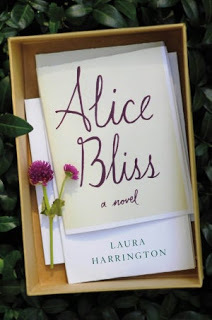
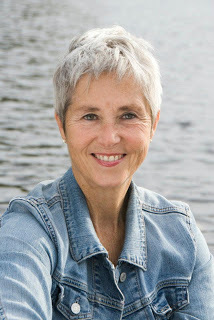
I'm giving over my blog to the great Laura Harrington, author of the wonderful novel Alice Bliss. Thank you, Laura!
"If you're in control, you're not going fast enough."Mario Andretti
At every Q & A for a book event there's always the "how" question. Various forms of: How do you do it? How do you create/ write/ find the discipline/ stay motivated? Given that we are all creative beings, what is it that separates those who write from those who wish they were writing? I've given this a lot of thought over the years. What follows is my own very personal list.
Doing what you're afraid of.The new age version of this is: Embrace your fears. Sounds a little too cozy for real terrors, doesn't it? And actors would say: Use your fear.We all have our fears; fear of failure, fear of bungee jumping, fear of not being loved, not measuring up, etc. In college I was so afraid that my dream of becoming a writer might not come true I stopped writing altogether. This became so uncomfortable over the course of several years that I finally decided to confront my fear of failing and figure out whether I was going to write or not. The need to know one way or another trumped my fear. I enrolled in a graduate creative writing program and took the course that sounded the most terrifying: playwriting, about a subject I knew absolutely nothing about: plays. Taught by a type of writer I did not really know existed in modern times: a playwright. It changed my life.
Tolerating uncertainty.In order to create anything you have to learn to tolerate uncertainty for long stretches of time. Most of us hate uncertainty and avoid it as much as we can.In the beginning: There's the "contemplating the void" period, when you're starting a new project but it's not actually a project yet, it's hardly an idea, it's something inchoate and is only beginning to take form and swim in your unconscious. You have to sit with the emptiness day after day, week after week, taking notes, showing up, not knowing. Robert Anderson, author of Tea and Sympathy, calls this period "fishing."In the middle: When I'm in the middle of a book or a play everyday is uncertain. Will I have ideas? Will my characters talk to me? Am I moving in the right direction? Is there a story here? Does anyone care? Do I care?In the end: Will my book be published? Will my play be produced? Will I survive the critics? Will I make any money? Can I quit my day job?Here's the secret: Hidden within all of this uncertainty, this not knowing, being off-balance are the questions that lead deeper into the work, the obsessions, the writing.
Creating a practice.I find it more useful to model my working life on musicians rather than the romantic idea of the writer waiting for the muse. Waiting for the muse has never worked for me. While waiting for the muse I get overwhelmed by uncertainty and doubt and fear and by the crushing need for chocolate or coffee or companionship or anything at all that will take me away from the uncertainty and doubt brought on by waiting for the muse.Showing up everyday with a pen is the only way I can circumvent the uncertainty. I'm just sitting here, I'm just writing, I'm just going to see where this idea takes me. Like practicing scales on the piano. It's not a big deal. It's not art. It's not important. I'm just warming up. It's just practice.This is why you see brilliant writers like playwright August Wilson writing on napkins. It's just a napkin. There's no pressure for this poor napkin to win another Pulitzer.
Faith.When Caroline invited me to write this essay about creativity the first word that popped into my head was faith. In the middle of a book or a play I'm living on blind faith. I might have a map, I might know that there's a bridge I'd better be sure to cross, but finding my way? Faith. Stumbling around in the dark. My writing practice often feels like simply showing up and trusting. Doubt, faith's twin, is with me every step of the way, biting at my heels. Blind faith can be exhilarating: days when a new character appears, fully formed. Doubt can be overwhelming: days when it's just too damned difficult to trust, to be patient, to follow the path rather than control the itinerary.But I always come back to this: I have faith that writing is important, that I will finish this book or this play, faith that what I am obsessed with will matter to a few other people, faith in the written word, faith in the process, faith in my practice to see me through one more time.
Getting physical.For me, none of this would be possible without getting physical and getting playful. Getting out of my head and onto the beach or into the quarry or the ocean or the pool. I have ridden horses, taken boxing lessons, learned how to salsa, practiced yoga, walked, hiked, biked, skated, played volleyball, just about anything to engage my body and give my mind a vacation or a new challenge. I'll never be a boxer, a yogi, or a professional athlete; but each of these things refreshes my spirit and both allows me to experience the joy/fear combo of being a beginner again and reminds me that progress, like writing, comes in very small steps.
Letting go.In a recent interview, painter Frank Stella quoted race car driver Mario Andretti:"If you're in control, you're not going fast enough."There are things in our life that we can control, or that we like to think we can. Controlling your writing is not such a great idea. Arthur Kopit, my first playwriting teacher would say, "Consider the word "play" in all its meanings. If you are not playing and having fun when you're writing your audience won't be having much fun either."Great writing has the promise of a wild ride or a bacchanalia within it; the best party you've ever been to, where unexpected, sometimes terrifying life-changing events occur.
So I try to be fearless, I try to enjoy the fact that I don't know where I'm going or if I'll ever get there, I remind myself to play, to be a beginner, I try to have enough faith to let go. And I remember playwright Suzan Lori Parks saying: "Every morning when I wake up I get to say: I'm a writer. Today I get to write."
Published on January 23, 2012 12:49
Hilma Wolitzer talks about An Available Man
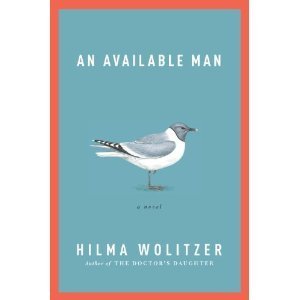
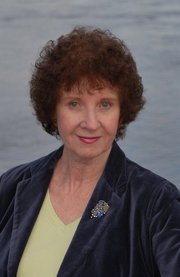
I loved this novel so much, I blurbed it! In the wake of her fantastic New York Times review, I am honored to have Hilma on here today writing about writing. Thank you, Hilma!
Looking for an Available Man
When I began to write An Available Man, I was thinking more about available women, those friends and relatives who'd suddenly found themselves single again through divorce or a spouse's death. Some of them were content to be on their own, but others were longing to be part of a couple again. I heard a lot of horror stories about online dating: men who lied about their age (by up to 25 years!), photo-shopped themselves into Brad Pitt, tried to cop a feel right after (or during) a coffee date, or had the creepy look and demeanor of serial killers. Occasionally, I'd be asked, wistfully, if I happened to know of anyone nicer, more suitable.
Like Jane Austen's Emma and Sholem Aleichem's Yente, I've always had an impulse for matchmaking, usually with a stunning lack of success. My heart was in the right place, I suppose—why should anyone be lonely?—but I just didn't seem to have a talent for pairing people up. The general consensus was: what was she thinking?! Sometimes, I was told, it was even hate at first sight.
I started to think I'd have more luck writing a novel about looking for love the second time around. What if my protagonist was someone recently widowed whose (well-meaning) friends try to fix her up? And what if she goes online? I had a lot of material to build on: all those reported dates from hell—the raunchy and/or impotent men, the cheapskates, the scary ones.
But weren't there any decent guys out there? And how did they meet women? How did they feel about blind dates, about loneliness, and horniness? The more I thought about it, the more I began to envision a newly available man named Edward Schuyler. Soon I was hooked on the idea of writing from the male perspective, not my usual POV. I worried a little (in a twist on Freud) if I knew enough about what a man wants. And I'd once heard that Renoir claimed he painted with his penis. Unfortunately, I'm not similarly equipped, but men have been writing about women's inner lives for centuries, and I believe it's possible for women to also imagine the ultimate other, and the other side of the story.
I came to like and care about Edward, the way I do for most of my heroines, and I wanted him to find happiness. He seemed like the perfect match for so many of my witty, sensitive, attractive friends. It's just too bad he's not real.
Published on January 23, 2012 12:28



